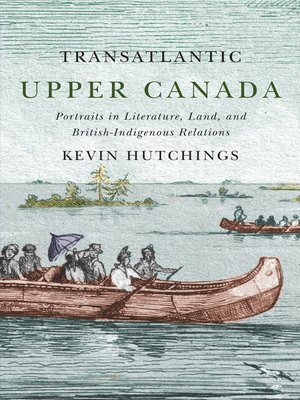Transatlantic Upper Canada
ebook ∣ Portraits in Literature Land and British-Indigenous Relations · McGill-Queen's Transatlantic Studies
By Kevin Hutchings

Sign up to save your library
With an OverDrive account, you can save your favorite libraries for at-a-glance information about availability. Find out more about OverDrive accounts.
Find this title in Libby, the library reading app by OverDrive.



Search for a digital library with this title
Title found at these libraries:
| Library Name | Distance |
|---|---|
| Loading... |
Literature emerging from nineteenth-century Upper Canada, born of dramatic cultural and political collisions, reveals much about the colony's history through its contrasting understandings of nature, ecology, deforestation, agricultural development, and land rights. In the first detailed study of literary interactions between Indigenous people and colonial authorities in Upper Canada and Britain, Kevin Hutchings analyzes the period's key figures and the central role that romanticism, ecology, and environment played in their writings. Investigating the ties that bound Upper Canada and Great Britain together during the early nineteenth century, Transatlantic Upper Canada demonstrates the existence of a cosmopolitan culture whose implications for the land and its people are still felt today. The book examines the writings of Haudenosaunee leaders John Norton and John Brant and Anishinabeg authors Jane Johnston Schoolcraft, Peter Jones, and George Copway, as well as European figures John Beverley Robinson, John Strachan, Anna Brownell Jameson, and Sir Francis Bond Head. Hutchings argues that, despite their cultural differences, many factors connected these writers, including shared literary interests, cross-Atlantic journeys, metropolitan experiences, mutual acquaintance, and engagement in ongoing dialogue over Indigenous territory and governance. A close examination of relationships between peoples and their understandings of land, Transatlantic Upper Canada creates a rich portrait of the nineteenth-century British Atlantic world and the cultural and environmental consequences of colonialism and resistance.







